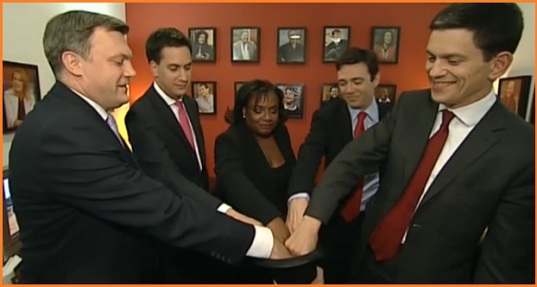Why is the Labour leadership contest so boring?

Has the party lost its mojo?
The Labour Party used to give excellent theatre. From conference debates to leadership and deputy leadership elections, the battle for Labour’s – and to those participating, the country’s – future was vigorously fought in public. By contrast, the current contest to succeed Gordon Brown as Labour leader has not exactly caught the public imagination. Why?
Having just lost power after 13 years, and with the reasonable prospect of not having a chance of regaining office until the middle of the decade, this should be exactly the right time to debate the party’s future. Indeed, if it can’t do it now, when can it? Nor is it that the result doesn’t matter. Labour needs to win only a relatively small number of seats at the next election to be very much back in the game.
One of the simpler answers is that the candidates have shut themselves away. Unlike the Tory leadership contest of 2005, there’s been no big set-piece launch for the media to get their teeth into, nor even the prelude of several rounds of MPs voting. There have been many hustings events but the sheer number makes each unremarkable and in any case, they’re behind closed doors.
That can only be a part of the explanation though. A much bigger factor has to be the nature of the debate itself. It’s simply missing.
While the candidates have come up with their own analyses of why the party lost and what needs to be done to remedy it, they usually talk without specifics and it’s specifics which form the core of an argument. The contest has conspicuously lacked any big arguments.
That might be because Labour’s got out of the habit of big public arguments for two reasons. Firstly, they’ve collectively learned that it didn’t do their electoral chances any good to be seen as so split; secondly, the number of independent actors to have those debates has dwindled. The party’s become more professional, more unified and less of a movement. There’s a greater acceptance of a top-down approach and debates where unions or the membership are in large numbers at odds with the leadership are far rarer than twenty, thirty or fifty years ago. There would be a certain irony if Labour’s statist approach, relying on ‘experts’ to provide solutions ended up robbing itself of its own vibrancy.
At the top level, New Labour’s drive to ensure its team remained ‘on-message’ might be what’s stifling the debate: a self-discipline that’s now so second nature that even when the party needs to ask itself what it’s for and where it’s going, its leadership candidates have trouble disagreeing with each other. Obviously, Labour doesn’t want stories about a ‘civil war’ within their ranks but there’s a big difference between that and an open and honest debate.
On top of that, the Labour leadership candidates look hamstrung by not wanting to propose any policy that might result in losers beyond rich bankers. We may well have seen an example of that this week when Ed Miliband appeared to propose then row back on regional differentials for benefits. There is the union vote to consider of course (and for that matter, union funding of Labour), as well as the interests of members. It still doesn’t make for exciting, varied debate.
In the longer term, the question is how Labour goes about renewing itself in preparation for the next election. There’ll be a second opportunity to ask the questions it could be asking now, once there’s a leader in place. It won’t be as easy then. The leadership will have a position and will be putting its authority on the line if there’s a risk of defeat (and how meaningful would it be if there’s not that risk). Perhaps more importantly, if it can’t summon the energy to do it now, how will it do so then?